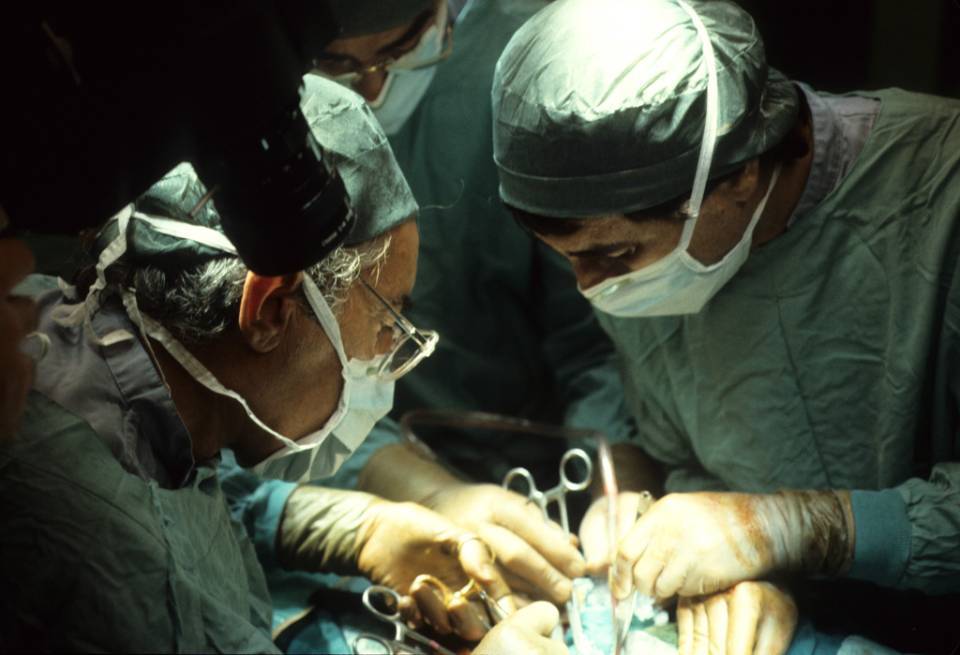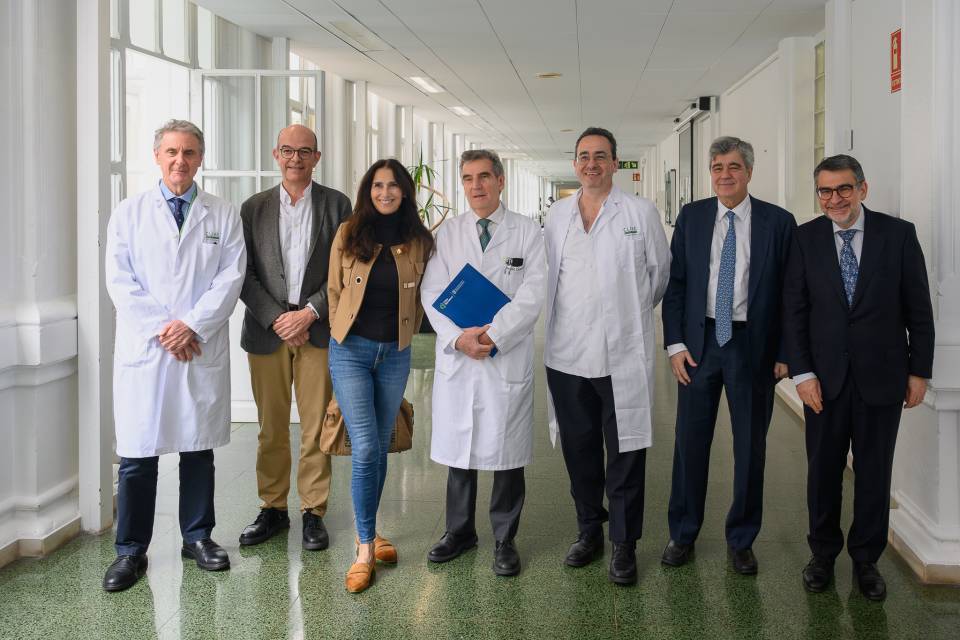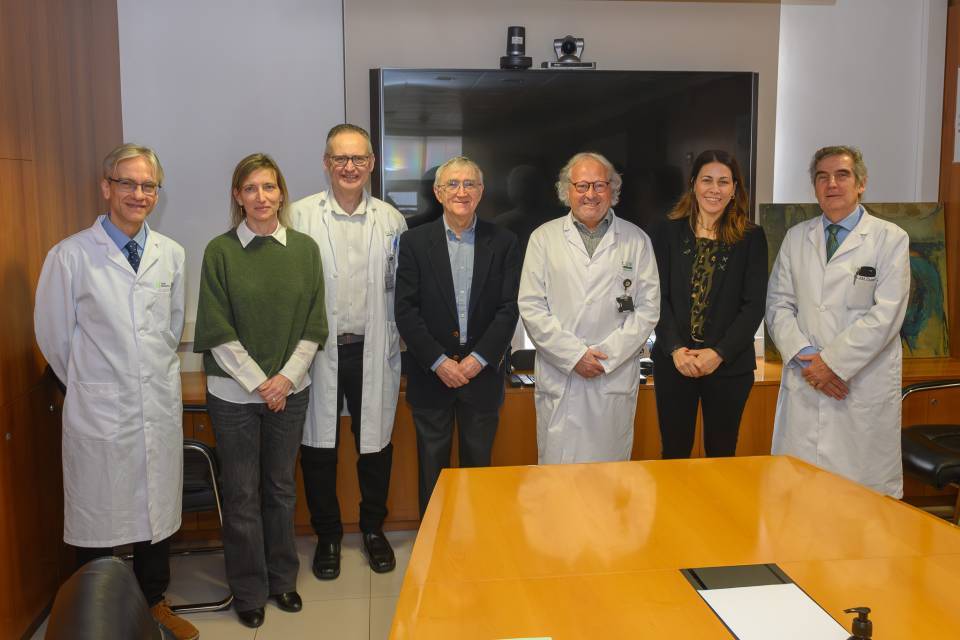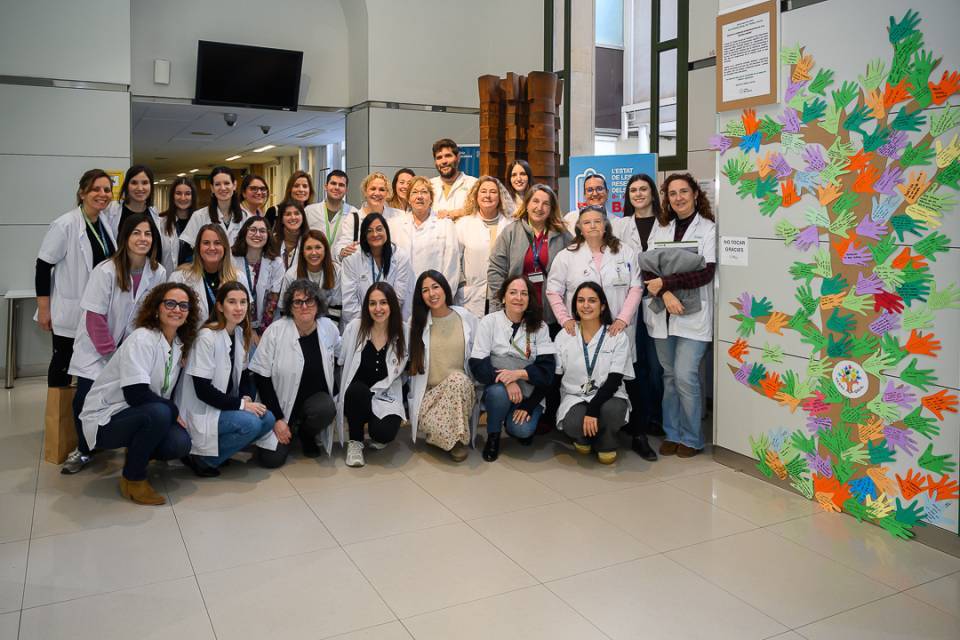Today, the Hospital Clínic is the hospital that has performed the most transplants of this type in Spain, with a total of 657. Last year alone, they carried out 27. Reaching this milestone and becoming the hospital in Spain that carries out most transplants of this type was possible thanks to the coordinated work of the nephrology, general and digestive surgery, urology, anaesthesiology, immunology and nursing teams.
To celebrate this milestone, the Hospital Clínic Barcelona organized an event this Friday in which the professionals who participated in that feat and those currently responsible for the pancreas and kidney transplant programme gave their point of view and discussed their vision for the future of this complex procedure.
Of the 657 pancreas and kidney transplants, 63% were performed on men and 37% on women. In 609 of the 657 pancreas transplants, a kidney transplant was also carried out. The pancreas transplant with the longest surviving recipient was performed in 1990 on a 29-year-old man and he lived for 30 years after the transplant. The Hospital Clínic is currently the Spanish National Health System Referral Centre (CSUR) for simultaneous pancreas-kidney (SPK) transplantation for five autonomous communities and Andorra.
According to Dr. Laureano Fernández-Cruz, who led the first pancreas transplant in Spain at the Hospital Clínic, “the transplant activity that we led at that time raised the level of medicine in public hospitals”.
According to Dr. Frederic Cofan, nephrologist at the Hospital Clínic and responsible for the pancreas and kidney transplant programme “pancreas and kidney transplantation is the best treatment for people with type 1 diabetes mellitus who are on dialysis or in the predialytic phase, since it allows them to stop being on dialysis, discontinue the administration of insulin, and has also been shown to increase the patients' survival rates”.
Dr. Joana Ferrer Fàbrega, of the General and Digestive Surgery Service, explains that, “the ultimate goal of simultaneous pancreas-kidney transplantation is to improve the patient's quality of life and slow down or avoid any chronic complications derived from diabetes”. The Hospital Clínic is not only a leader in Spain in the number of transplants, but is also a member of European working groups and is involved in research projects to improve global results and achieve excellence.
Dr. Ramon Rull, of the General and Digestive Surgery Service says that, "pancreas and kidney transplantation can be carried out thanks to the generosity and altruism of the donor and, at a difficult and painful time for the family, faced with the loss of a loved one, there is an awareness that donating their organs allows other people to continue to live, or improves other people’s quality of life”.
Diabetes mellitus and pancreas transplantation
Diabetes mellitus is a chronic disease that is characterized by an increase in sugar (glucose) levels in the blood. In patients with diabetes mellitus, strict blood glucose control is essential to prevent chronic complications such as chronic kidney disease (kidney damage), diabetic retinopathy (eye disease), or diabetic neuropathy (nerve disease).
Pancreas transplantation is a treatment option for patients with insulin-dependent diabetes mellitus (type 1). Pancreas transplantation involves complex surgery during which the entire pancreas from a deceased donor is transplanted into the recipient’s abdomen. In most cases, a kidney transplant is performed simultaneously, because patients usually have advanced chronic kidney disease that requires dialysis.
The main objective of pancreas transplantation is to implant into the recipient cells that produce the amount of insulin required. Patients who have had a pancreas transplant are thus able to maintain normal blood glucose levels without needing any other treatment for diabetes. A functional transplanted pancreas is able to produce insulin to meet each patient’s metabolic needs. In this way, critical episodes of hypoglycaemia (low blood sugar levels below 50 mg/dL) can be avoided. Patients who have received successful pancreas-kidney transplants will be able to live without needing to administer insulin or any other medication for diabetes mellitus from the first day after they are discharged from hospital. Moreover, they no longer require dialysis because their kidney function is restored.




